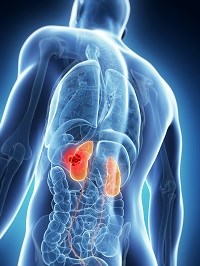Kidney Disease: Early detection is the key
- Category: Blogs, Kidney Health
- Posted On:
- Written By: Horizon Health

 Symptom-less is not the same as symptom-free. The priceless value of preventative screenings is that diseases can be discovered before you notice any signs or symptoms. The issue is that symptoms of certain diseases often wait until a disease has progressed beyond cure or easy treatment before any signs are noticeable.
Symptom-less is not the same as symptom-free. The priceless value of preventative screenings is that diseases can be discovered before you notice any signs or symptoms. The issue is that symptoms of certain diseases often wait until a disease has progressed beyond cure or easy treatment before any signs are noticeable.
Screenings aren’t always complex procedures. Certain screenings are as simple as a blood test or a urine sample. Take the screening test for kidney disease for example. The symptoms of kidney disease are often hidden until the disease has advanced, but a simple urine test or blood test can reveal if you have kidney disease.
KIDNEY DISEASE STATS:
- 1-in-3 American adults are at risk for developing kidney disease.
- It’s estimated that 26-million Americans have kidney disease.
- More than half-a-million people have kidney failure in the U.S.
- Nearly 100,000 people are waiting for kidney transplants.
- Kidney disease is the ninth leading cause of death in the U.S.
*Early detection can make a difference in preventing kidney disease.
(from https://www.kidney.org/news/monthly/Focus_KidneyMonth)
National Kidney Month
March is National Kidney Month, and PCH/FMC would like to emphasize kidney health and preventative screenings. After all, kidneys filter your blood, help regulate body fluids, control red blood cell production, help regulate blood pressure, and are vital in maintaining your overall health.
Risk Factors
While some kidney issues are treatable, others are progressive and irreversible. Talk with your health care provider about screenings if you have any of these major risk factors for kidney disease:
- Diabetes – kidney damage is a common complication of diabetes
- Family history of kidney failure
- Age 60 or older
- High blood pressure
Prevention
There are a number of things you can do to protect your general wellbeing. These include controlling your weight, blood pressure and cholesterol levels, eating a healthy diet, stopping the use of tobacco and alcohol products, having an exercise regimen, and knowing your family history.
For more information about screenings and services related to overall kidney health, call (217) 465-CARE.



